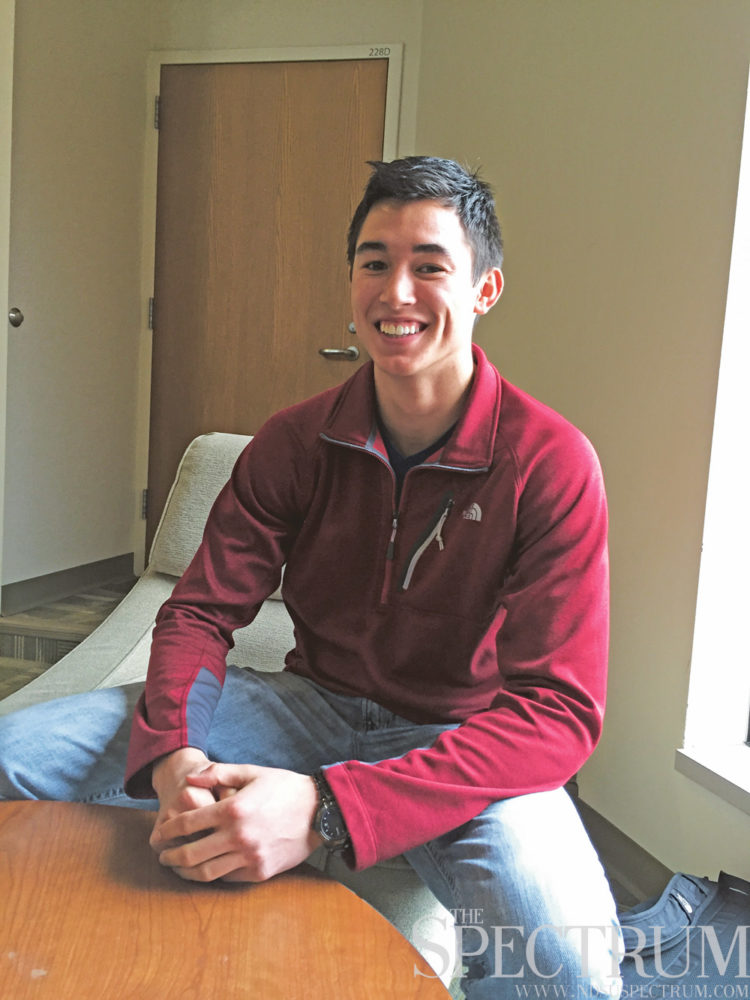
Ben Huber works in Dr. Glenn Dorsam’s immunology lab.
If you imagine a university lab, you may think of the graying scientist with years of experience, possibly with a bunch of rats in the background. But this isn’t always the case — sometimes undergraduate students have the opportunity to be involved with the research process and lab rats are replaced with mice.
Ben Huber is a junior majoring in zoology and biotechnology with the goal of continuing on to dental school. He also works in Glenn Dorsam’s immunology lab, where the lab team studies vasoactive intestinal peptide, along with the VIP receptors VPAC1 and VPAC2. This all sounds complicated (because it is), but VIP plays a role in many functions and relates to immune functioning and hematopoiesis — the production of blood cells in the bone marrow. The lab is especially interested in VPAC1 and its implications for immune functioning.
Huber was kind enough to let me ask a few questions to learn more about his work in the lab.
What drew you to the Dorsam lab?
Huber: I took immunology with Dr. Dorsam and I appreciated his focus on really learning and applying the materials we were covering, instead of just memorizing things. Also, in the lab setting, I get to take basic concepts I learned in class and go much, much deeper with them. I enjoy the applicability, being able to work towards discovering new things, as opposed to a class setting where your lab work progresses to a more “known” result.
What are your responsibilities in the lab?
I’m considered the “rookie” of the lab, so I spend a bit of time taking care of the lab, making sure things are tidy, making sure supplies are in stock. I also have the responsibility of checking on the mouse lab twice a week, making sure there is enough food and water, etc. We also have lab meetings once a week. Usually one of the lab members presents something they are working on and we get to ask questions — for me this is crucial, it’s a great test for recalling and applying class materials I have learned.
What are some of the benefits of working in the lab?
You get first-hand experience with how scientific study progresses. My previous knowledge of chemistry, biology, etc. are constantly tested — Dr. Dorsam is always picking my brain. But it’s great, because he knows I’m there to learn and he totally understands mistakes. It’s not a stressful environment, it’s a great place to learn.
Are there other things you get to do in the lab?
Currently, I am “honing my skills.” I get to use polymerase chain reaction and gel electrophoresis (in simple terms, a DNA test) to determine which mice have or lack specific VIP receptors.
Would you advise other students to work in a lab?
I would, yes. If you can make some time and are interested in the work, it’s a great opportunity. You get to apply all of your knowledge and understand how the techniques that we use are applied in the “real world.”
Huber is planning on using the skills and knowledge he is acquiring in the Dorsam lab to pursue research and develop an honors thesis on the relationship between the production of red blood cells and VIP receptors.
